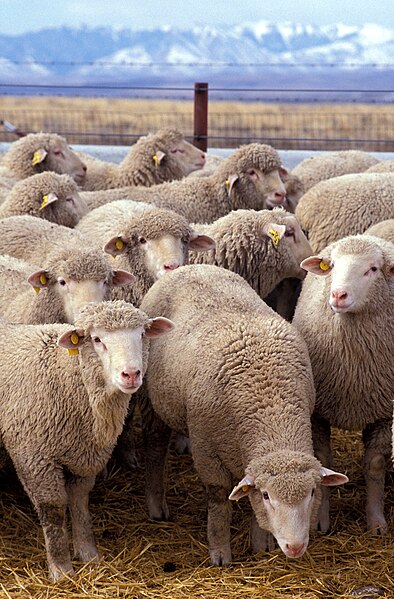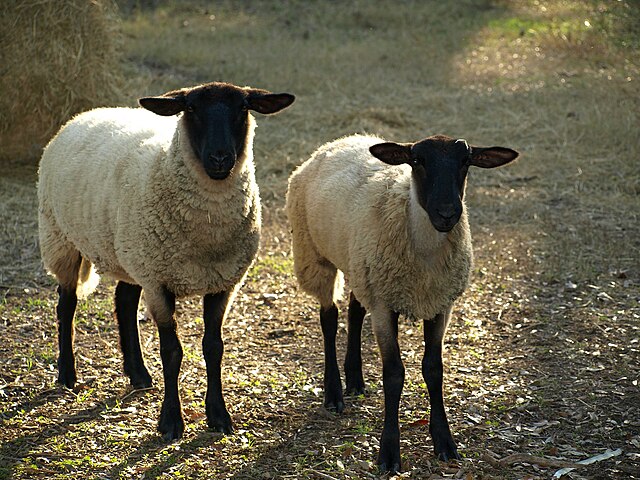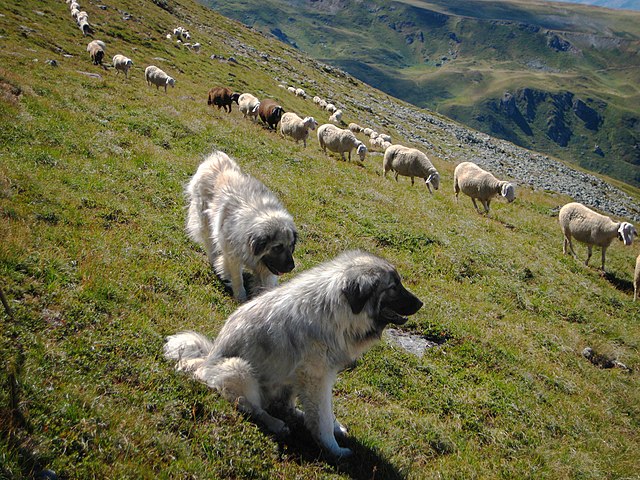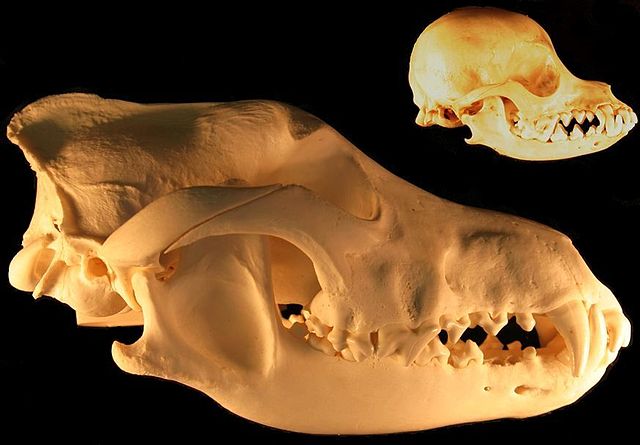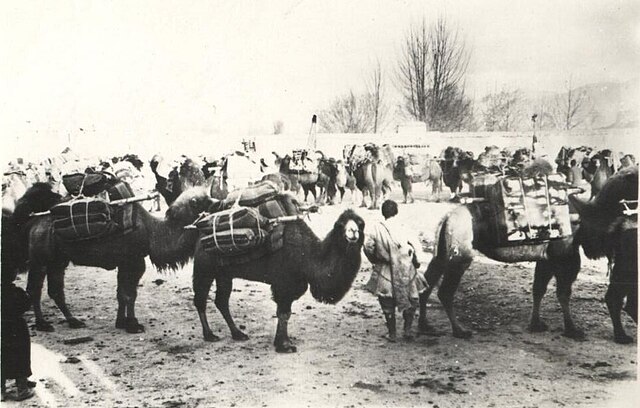Sheep or domestic sheep are a domesticated, ruminant mammal typically kept as livestock. Although the term sheep can apply to other species in the genus Ovis, in everyday usage it almost always refers to domesticated sheep. Like all ruminants, sheep are members of the order Artiodactyla, the even-toed ungulates. Numbering a little over one billion, domestic sheep are also the most numerous species of sheep. An adult female is referred to as a ewe, an intact male as a ram, occasionally a tup, a castrated male as a wether, and a young sheep as a lamb.
Sheep
Sheep in Turkmenistan
Suffolks are a medium wool, black-faced breed of meat sheep that make up 60% of the sheep population in the U.S.
Skull
Domestication is a multi-generational mutualistic relationship in which an animal species, such as humans or leafcutter ants, takes over control and care of another species, such as sheep or fungi, so as to obtain from them a steady supply of resources, such as meat, milk, or labor. The process is gradual and geographically diffuse, based on trial and error.
Dogs and sheep were among the first animals to be domesticated, at least 15,000 and 11,000 years ago respectively.
Rice was domesticated in China, some 13,500 to 8,200 years ago.
Domesticated animals tend to be smaller and less aggressive than their wild counterparts; many have other domestication syndrome traits like shorter muzzles. Skulls of grey wolf (left), chihuahua dog (right)
While dogs were commensals, and sheep were kept for food, camels, like horses and donkeys, were domesticated as working animals.

